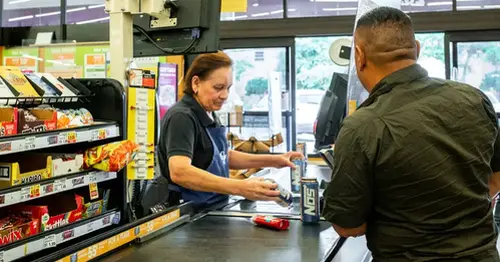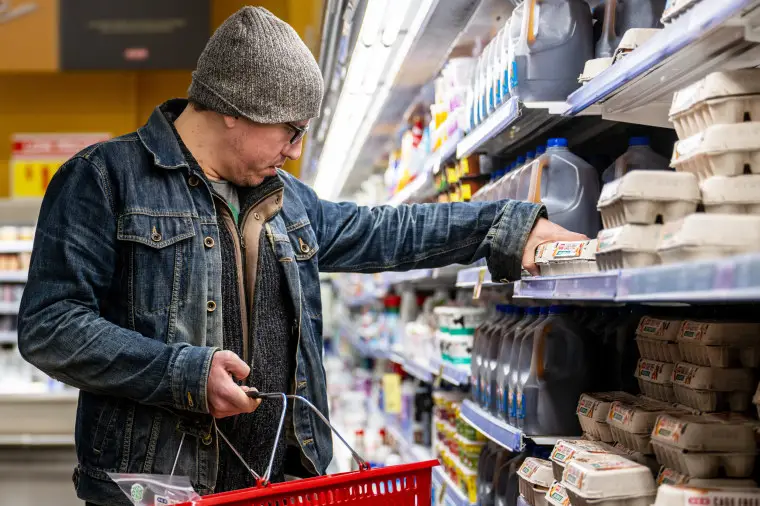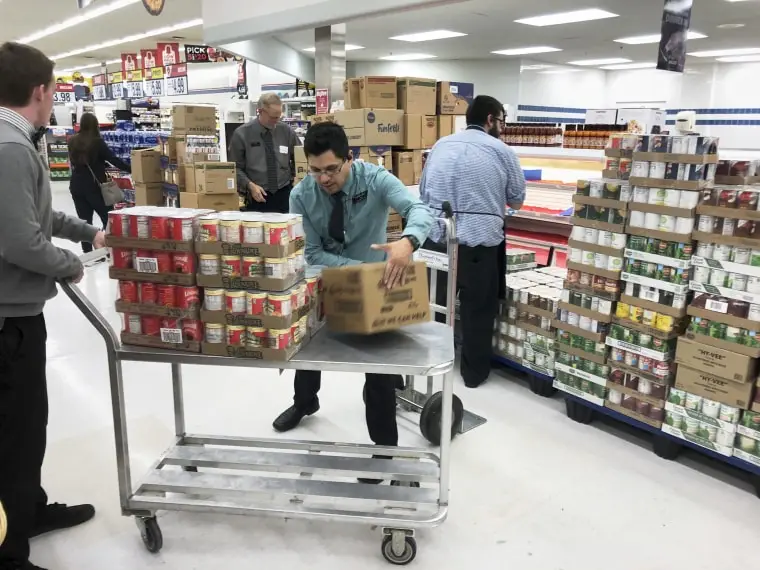
As inflation stays high, grocers push back against raising food prices
As many shoppers trade down from pricier brand-name items for generic alternatives, grocers are increasingly pushing food suppliers to lower prices.
Government data released Tuesday showed grocery prices were 11.3% higher in January than the year before, as Russia’s invasion of Ukraine and unfavorable weather have driven up the costs of eating at home over the past year.
Food makers and supermarket suppliers have raised prices on many of their goods to cover higher costs, which grocers have frequently passed on to consumers.
So far, many shoppers have simply paid them. Coca-Cola, for example, reported higher-than-expected quarterly earnings Tuesday thanks to the higher prices it has been charging for certain beverages.
But consumers, as well as the grocery stores where they shop, are increasingly pushing back. At least two major retailers, Whole Foods and Walmart, are reported to be asking major suppliers to bring prices down. The much smaller regional grocer Hy-Vee said it and some of its peers are doing the same. (Whole Foods didn’t respond to a request for comment, and Walmart declined to comment.)
“We’re spending more time than we’ve spent in the past negotiating prices and negotiating cost increases — frankly, questioning cost increases and pushing back,” CEO Jeremy Gosch said.

Grocery stores regularly negotiate with suppliers, such as multinational food and household-goods giants like Unilever and Procter & Gamble, to set pricing. The negotiations often involve grocers’ flagging their in-house alternatives to name-brand items to secure competitive price levels.
Iowa-based Hy-Vee, for example, said it might mention products supplied by Topco, a cooperative of grocers that produces its own private-label products, in discussions with major suppliers of baked goods.
Grocers are increasingly testing the extent of their bargaining power this year as consumers continue to gravitate toward grocers’ own “private label” goods. Private labels accounted for 21.9% of total food sales at the end of 2022, Bank of America Research said last week, up slightly from roughly 21.6% the year before (but below the pre-pandemic level of 22.4%).

Reynolds Consumer Products, which produces both name-brand and private-label products, said on a recent earnings call that party cups, plastic wrap and parchment paper are among the categories in which consumers are turning away from pricier brand names.
Clorox has said consumers still appear to be staying with its brand-name items, but it acknowledged that more shoppers are opting for smaller packs to reduce their grocery receipts.
“Some consumers are choosing to buy opening price points, because perhaps that day, their wallet, they have a limited amount of money they can spend in the category,” CEO Linda Rendle told analysts Feb. 2. In other cases, consumers are buying in bulk to save per unit.
While grocers believe shifting consumer trends are strengthening their hands in pricing talks, it remains to be seen whether their efforts will yield lower prices for more shoppers.
Some major chains, such as Kroger, have already wrung price concessions from suppliers in recent months — in some cases after having instituted their own earlier price hikes — but smaller rivals wield less clout in talks with food makers and distributors. Selling groceries is already a narrowly profitable business, leaving retailers little room to absorb suppliers’ price increases without losing money, which limits their ability to avoid passing on higher costs to shoppers.
Gosch said he is “hoping price increases slow” as a result of industrywide negotiations but warned that a “flattening out” of prices overall is unlikely in the next six months.
Executives at major suppliers generally have not promised price cuts. Mondelez, the snacking company behind Oreos and Ritz, said last month that it had fielded requests for lower prices in the U.S. but saw “no need” to roll out discounts.






